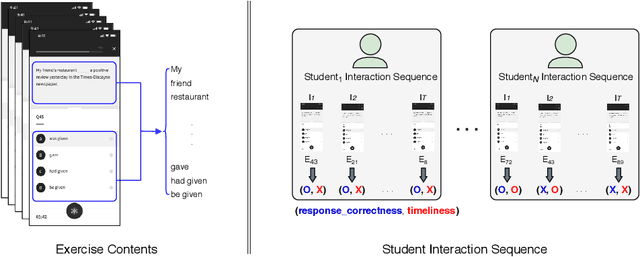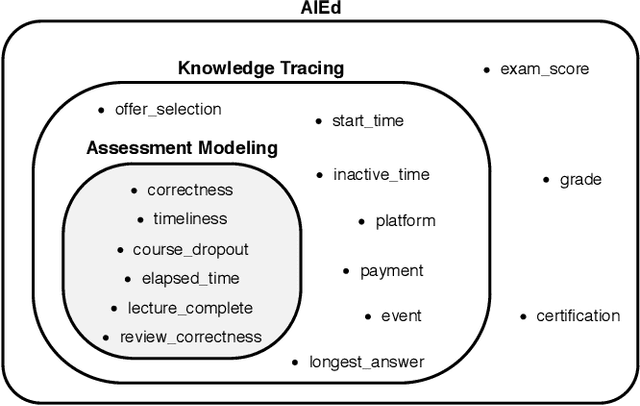Youngmin Cha
Assessment Modeling: Fundamental Pre-training Tasks for Interactive Educational Systems
Jan 01, 2020



Abstract:Interactive Educational Systems (IESs) have developed rapidly in recent years to address the issue of quality and affordability of education. Analogous to other domains in AI, there are specific tasks of AIEd for which labels are scarce. For instance, labels like exam score and grade are considered important in educational and social context. However, obtaining the labels is costly as they require student actions taken outside the system. Likewise, while student events like course dropout and review correctness are automatically recorded by IESs, they are few in number as the events occur sporadically in practice. A common way of circumventing the label-scarcity problem is the pre-train/fine-tine method. Accordingly, existing works pre-train a model to learn representations of contents in learning items. However, such methods fail to utilize the student interaction data available and model student learning behavior. To this end, we propose assessment modeling, fundamental pre-training tasks for IESs. An assessment is a feature of student-system interactions which can act as pedagogical evaluation, such as student response correctness or timeliness. Assessment modeling is the prediction of assessments conditioned on the surrounding context of interactions. Although it is natural to pre-train interactive features available in large amount, narrowing down the prediction targets to assessments holds relevance to the label-scarce educational problems while reducing irrelevant noises. To the best of our knowledge, this is the first work investigating appropriate pre-training method of predicting educational features from student-system interactions. While the effectiveness of different combinations of assessments is open for exploration, we suggest assessment modeling as a guiding principle for selecting proper pre-training tasks for the label-scarce educational problems.
 Add to Chrome
Add to Chrome Add to Firefox
Add to Firefox Add to Edge
Add to Edge